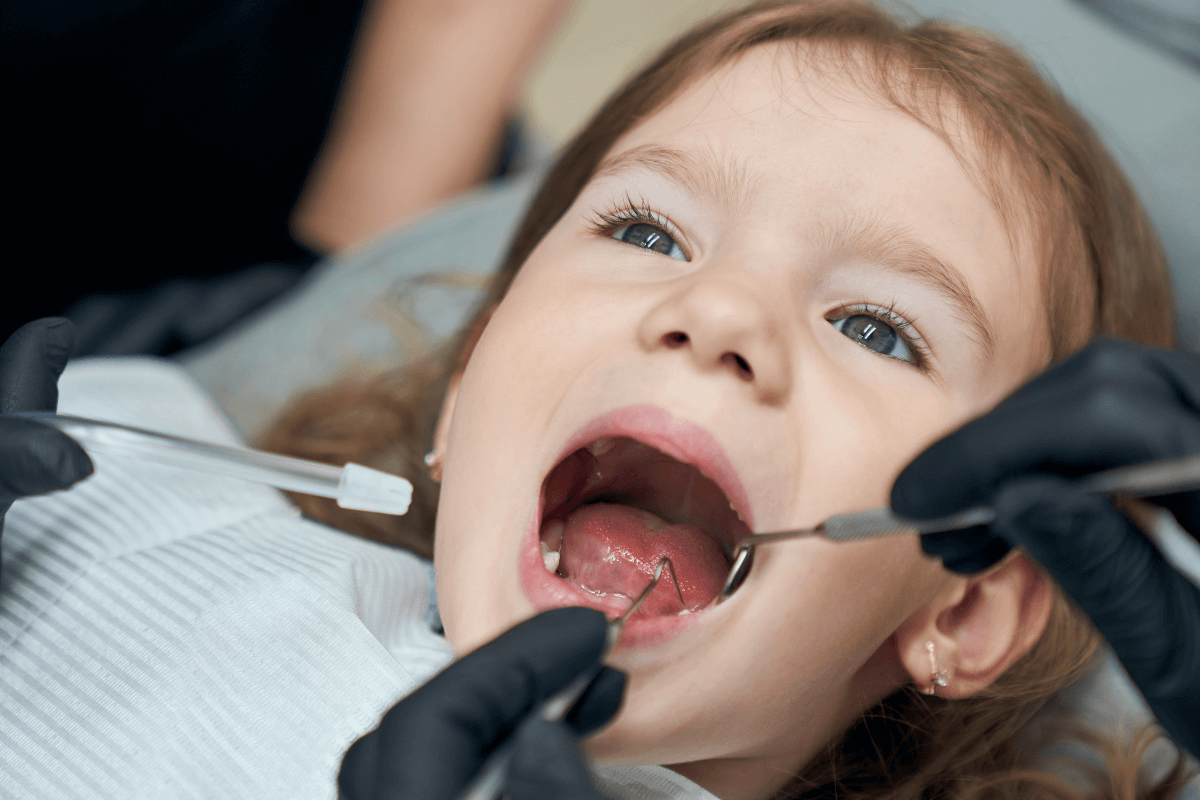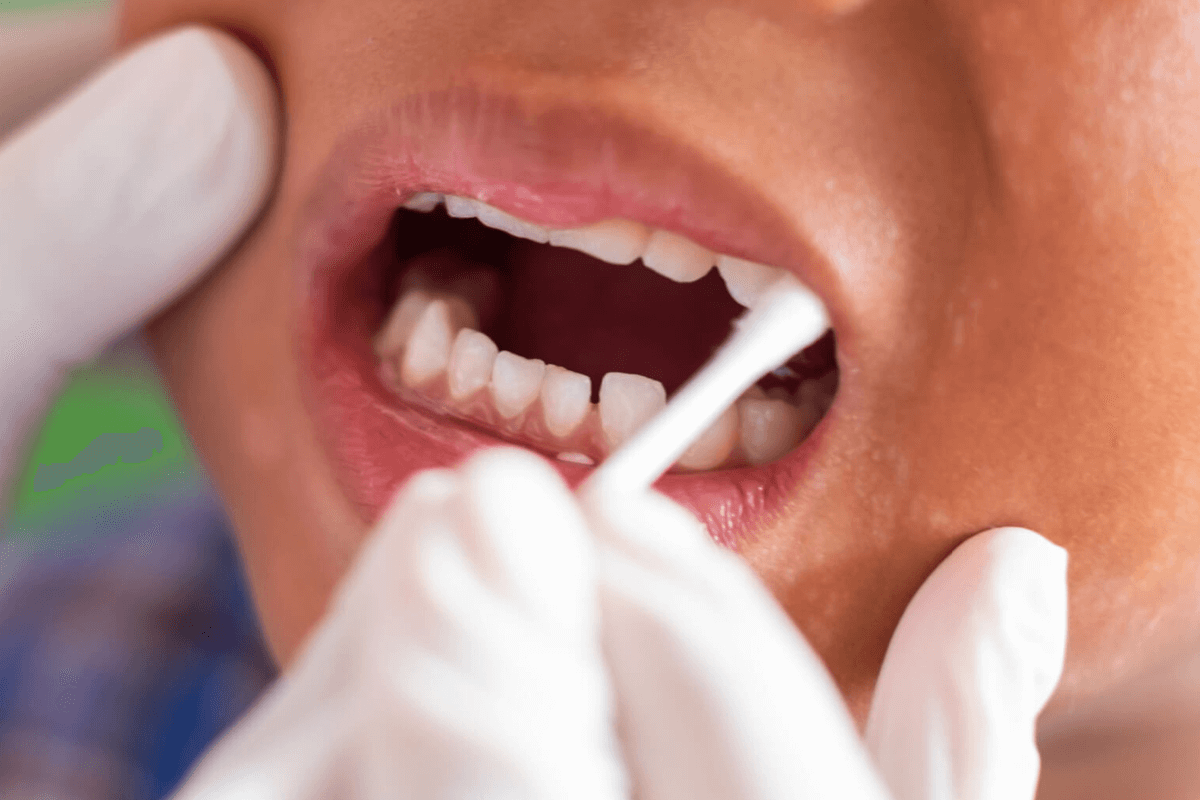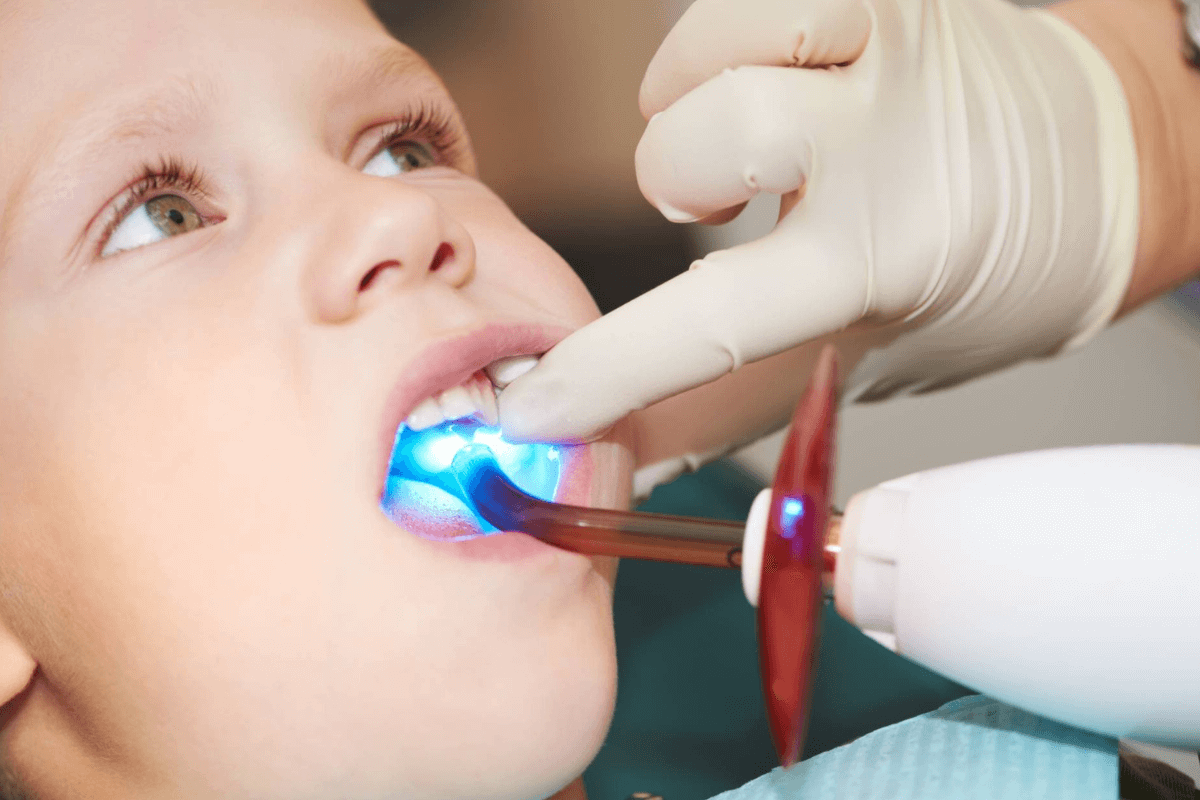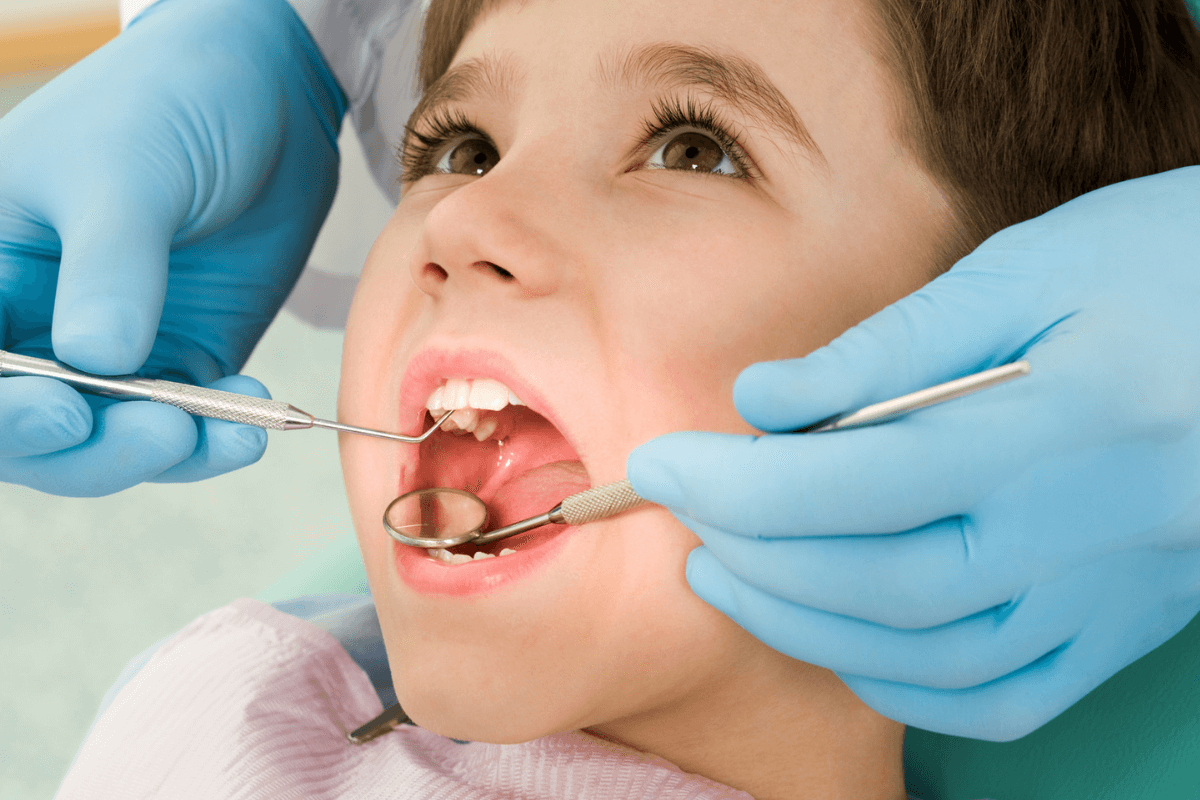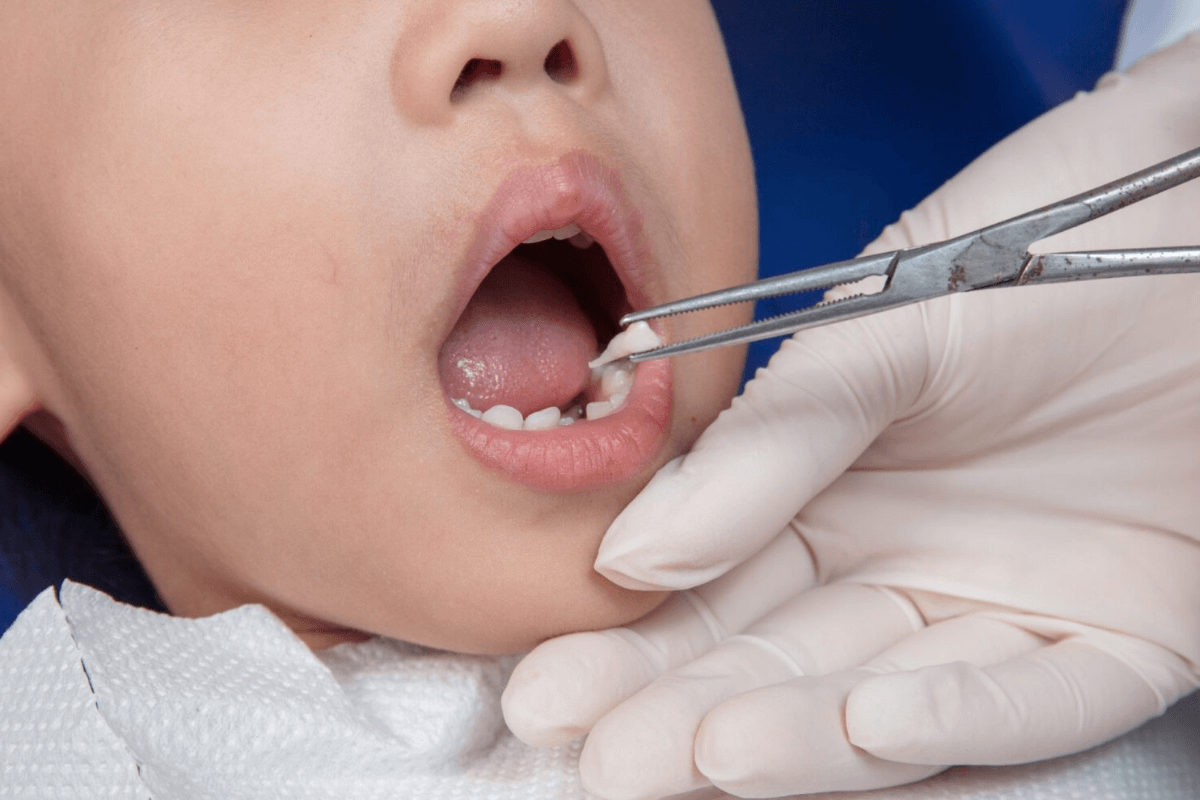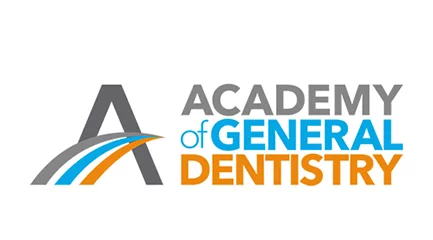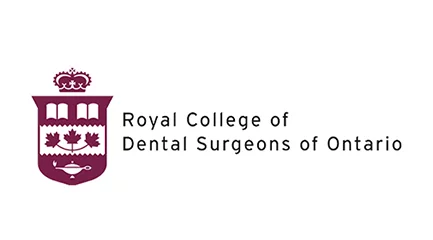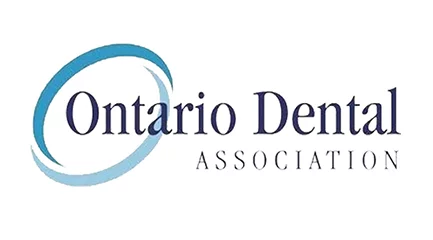As a parent, the smile of your child is among the most important things that captivates you. However, when the baby’s first tooth is visible, making sure you take the time to ensure your baby’s dental health is vital. Many parents believe that dental cavities in infant teeth aren’t really an issue because the teeth will eventually fall out, but that’s untrue. In reality, infant dental cavities could lead to permanent dental issues if not treated.
In this article, we’ll discuss what baby dental cavities are, what they cause, what you can do to prevent them, and how they can be addressed based on reliable sources for pediatric dentistry.
WHAT ARE BABY CAVITIES?
Baby cavities, also referred to as early childhood caries (ECC), are a reference to dental decay that occurs in infants and toddlers. The causes of cavities are when enamel (the outer layer that protects teeth) is worn away by acid produced by bacteria. The organisms feed off sugars found in formula, milk, juice, food, or even formula, making plaque and ultimately causing tooth decay.
Although baby teeth are only temporary, they play an important part in the development of speech and proper chewing habits, as well as helping to guide the development of adult teeth. The neglect of cavities in baby teeth can cause discomfort, infection, or early tooth loss that may eventually affect the alignment of your child’s teeth and bite.
WHAT CAUSES CAVITIES IN BABIES AND TODDLERS?
There are many factors that can cause the formation of cavities in infant teeth. The most frequent causes are:
1. FREQUENT SNACKING OR BOTTLE FEEDING:
If babies drink a lot of sugary drinks or sleep with bottles in their mouths, their teeth are continually being exposed to the sugar. This can lead to the development of bacteria that create cavity-causing acids.
2. POOR ORAL HYGIENE HABITS:
Inadequately cleaning your child’s teeth or gums regularly could let food particles and plaque accumulate, which creates the perfect environment for decay.
3. SHARING SALIVA:
The bacteria that cause cavities can be transmitted by caregivers or parents to children through using spoons to share or by licking pacifiers or putting them on the lips.
4. LACK OF FLUORIDE:
Fluoride strengthens enamel and helps prevent decay. Infants and toddlers who do not get enough fluoride could be more likely to develop cavities.
At Ingersoll Dental Centre, our dentistry for kids is designed specifically to inform parents and encourage children to develop healthy habits right from the beginning.
SIGNS OF CAVITIES IN BABY TEETH:
Baby cavities may not appear immediately, and that’s why regular check-ups are crucial. The first signs to look out for are:
- White spots that appear on the surfaces of teeth (often close to the gum line)
- Black or brown spots
- Sensitivity to hot and cold beverages and food
- Pits or holes visible in the teeth
- Discomfort or irritability when eating
If you experience any of these signs, it is essential to make an appointment for a dental check-up immediately. Our services for children’s dentistry in the Ingersoll Dental Centre are developed to identify issues early and offer gentle, efficient treatment.
WHY TREATING BABY CAVITIES MATTERS?
Parents often assume that babies’ teeth don’t require the same amount of care because they will eventually fall out. However, untreated dental cavities in baby teeth could result in:
- Infection and severe pain
- Abscesses can develop in other areas of the body
- Problems with eating or sleeping
- Damage to developing adult teeth
- Speech development delays
Earlier treatment is the best option to avoid complications and promote healthy dental development. We offer comprehensive examinations as well as gentle fillings for children to ensure that cavities are treated promptly and in a safe manner.
HOW ARE BABY CAVITIES TREATED?
The treatment is based on the severity of the tooth and the child’s age. Below are some of the commonly used procedures recommended by pediatric dentists.
1. FLUORIDE TREATMENTS:
In the initial stages, fluoride is a great way to remineralize weak areas and prevent decay from progressing. We provide fluoride treatments as part of our pediatric treatments to strengthen the teeth of children.
2. DENTAL FILLINGS:
If the tooth has grown, the child might require fillings to repair the tooth. Fillings that are tooth-colored give a natural appearance and a more comfortable feeling.
3. DENTAL CROWNS:
If you have more advanced decay, particularly in molars, a stainless-steel crown may be required to safeguard the tooth until it falls out naturally.
4. TOOTH EXTRACTION:
In extreme situations, if the tooth cannot be saved, extraction could be necessary. We make sure that this procedure is performed with care and only when absolutely needed.
The dentists of Ingersoll Dental Centre are experts in providing child-friendly services by using calm techniques and easy communication that make every appointment stress-free for children and parents.
PREVENTING CAVITIES IN BABIES AND TODDLERS:
Prevention is always more effective than treatment, and thankfully, there are many ways to guard your child’s teeth from decay.
BEFORE TEETH ERUPT:
- Cleanse your baby’s gums using a clean, damp cloth after each feeding.
- Do not put your baby to sleep with bottles.
AFTER TEETH ERUPT:
- Make sure your child’s teeth are cleaned at least twice per day using the softest toothbrush and a rice-sized amount of toothpaste.
- Beware of sugary drinks and snacks, particularly between meals.
- Avoid dipping pacifiers in sugar or honey.
- Schedule regular dental visits starting around your child’s first birthday.
- Avoid sharing tools or using pacifiers that are licked to prevent the spread of bacteria.
A fun routine of brushing and using reward charts could help make dental hygiene a fun aspect of your child’s daily life. Our preventive services for families assist parents in learning how to take care of their infant’s teeth and help set the stage for a lifetime of oral health.
WHEN SHOULD A BABY SEE THE DENTIST?
American Academy of Pediatric Dentistry recommends that children go to the dentist prior to their first birthday or at least six months after the first tooth erupts. The team at Ingersoll Dental Centre our staff welcomes toddlers, babies and small children for their first dental appointments, regular check-ups and tooth-care advice.
At the time of your child’s first appointment at the time of their first visit, we’ll:
- Examine their teeth carefully and gums
- Discuss oral and food habits
- Apply fluoride if necessary.
- Ask any question you might have regarding teething, pacifiers, or thumb sucking
Regular visits can help us spot problems early, establish positive connections with dental treatment and keep the small teeth strong and healthy.
WHY CHOOSE INGERSOLL DENTAL CENTRE FOR YOUR CHILD’S DENTAL CARE?
We understand how crucial it is to locate a dentist who really understands children. At Ingersoll Dental Centre, we offer:
- Specialized children’s dental services
- Dental exams for children that are gentle and child-friendly
- Treatment and prevention of cavities
- Cleaning and fluoride treatments
- Helpful guidance for parents
- Flexible scheduling, as well as emergency assistance
Our aim is to make each visit enjoyable and informative for the entire family.
PROTECT YOUR BABY’S SMILE–BOOK A VISIT TODAY!
Dental cavities in babies are more frequent than you realize, yet they’re avoidable. Taking care of them, having regular exams, and expert guidance will assist your child in developing an attractive, healthy smile that will last for the rest of their lives.
Are you ready to schedule your child’s first dental appointment? Or to treat a cavity that is already present?
Visit the Ingersoll Dental Centre or contact us today to make your appointment to meet with one of our welcoming dental teams. We’re here to help make every little smile sparkle bright.

